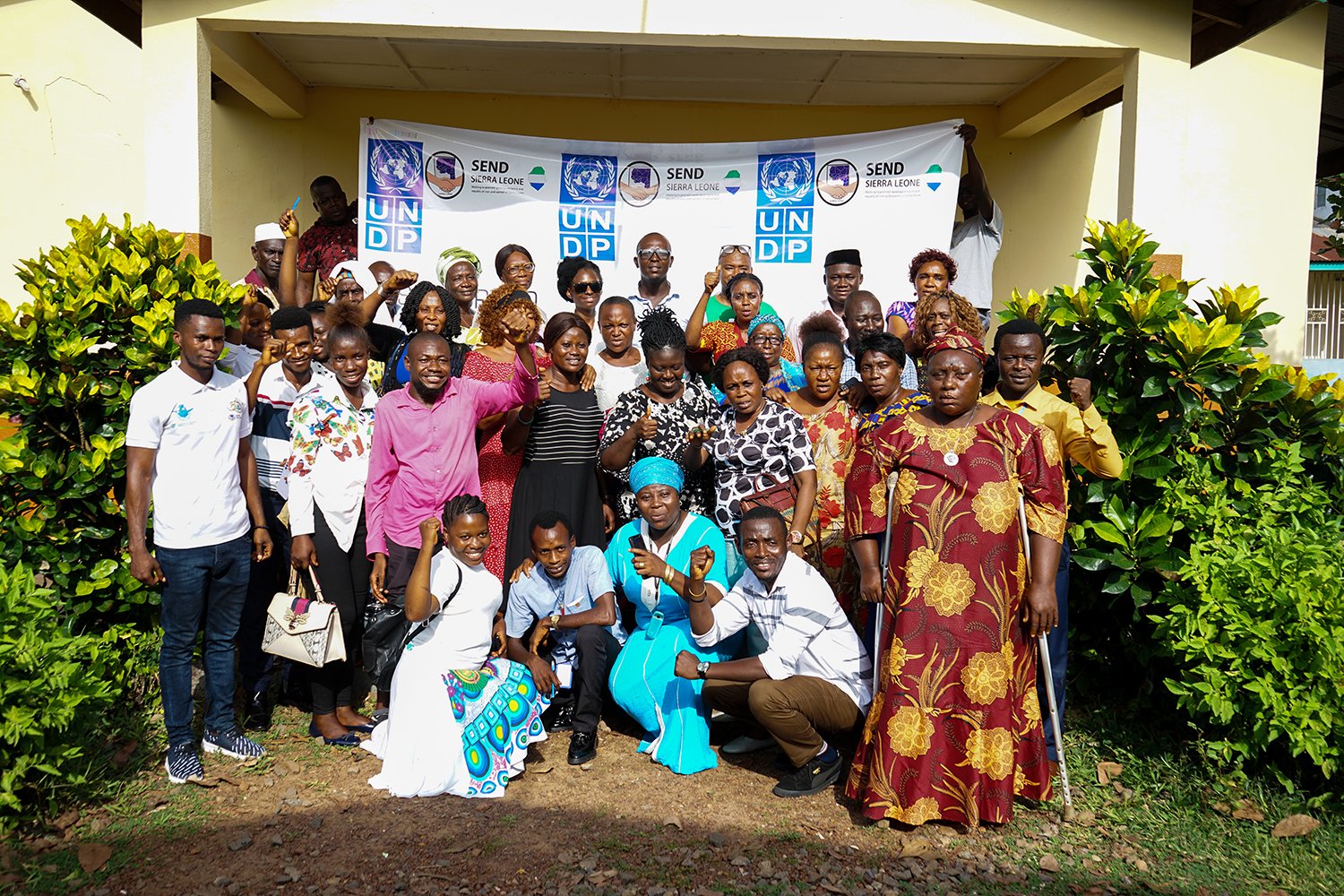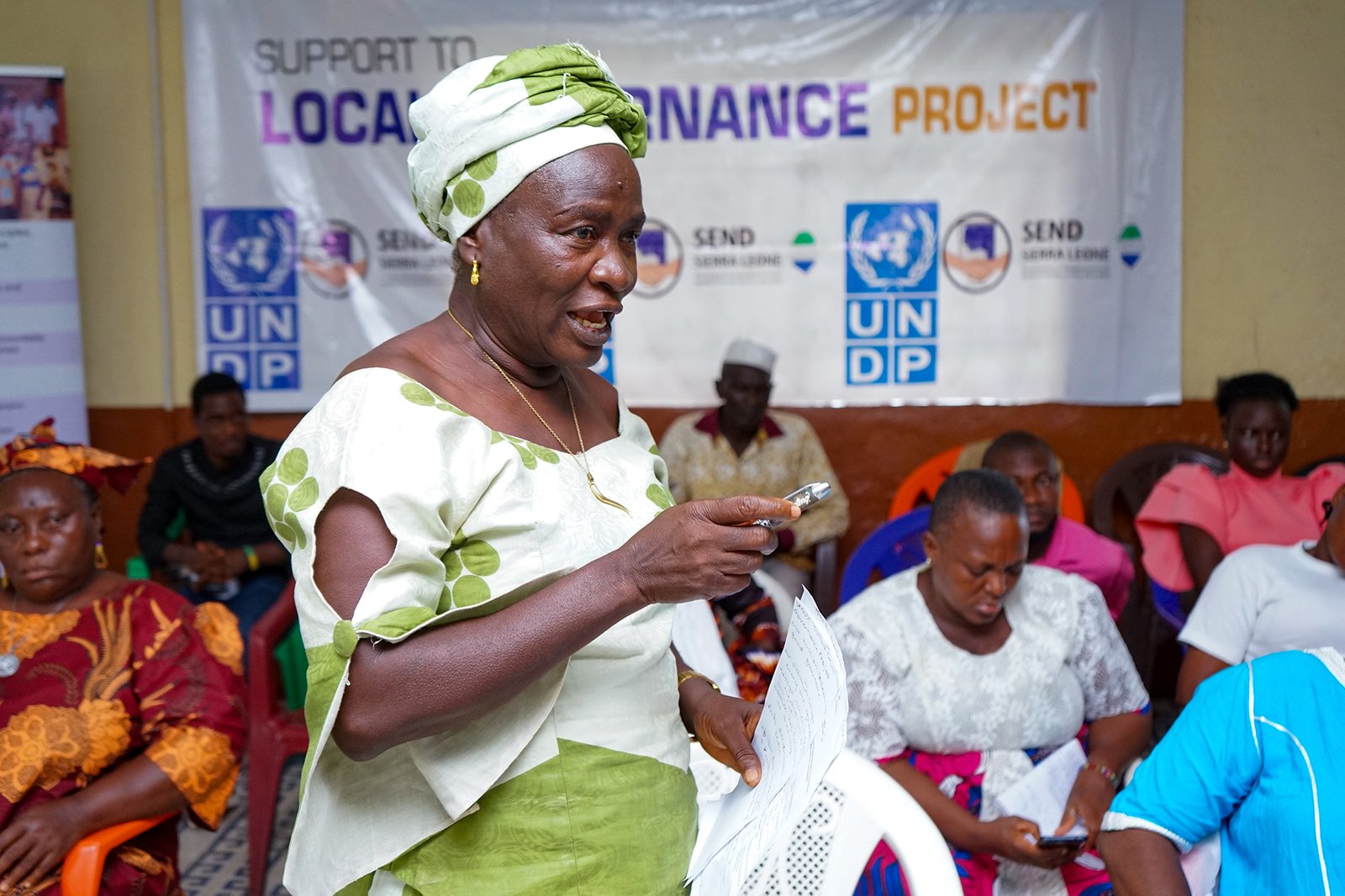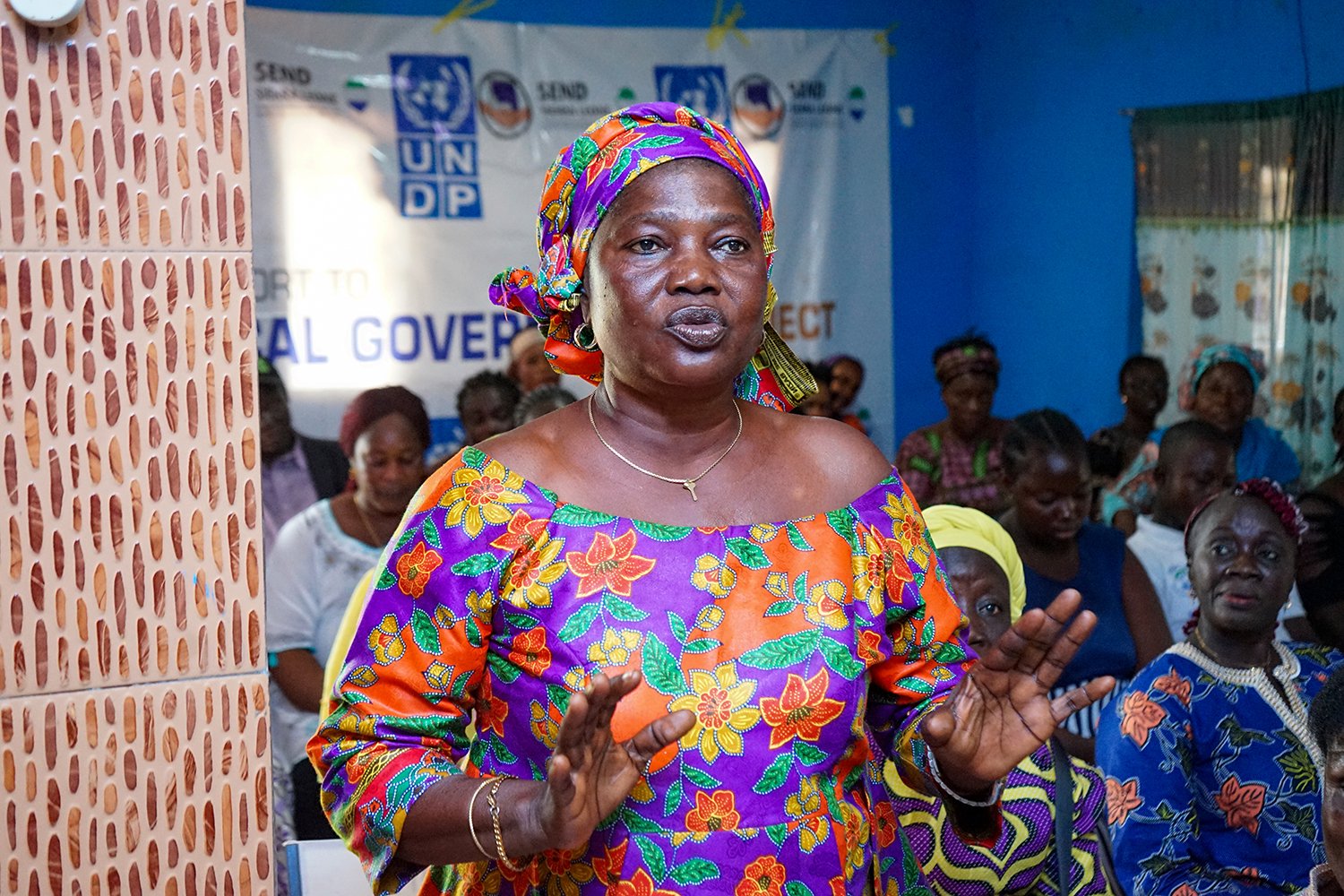INCLUSIVE DIALOGUES
FOR WOMEN'S POLITICAL EMPOWERMENT
PUBLISHED NOVEMBER 30, 2022
“The best place for women is in governance not in the kitchen”, Mary B. Sellu states boldly.

Background
In Sierra Leone, where women make up 52% of the population, they are still underrepresented in all spheres of decision-making, governance, and politics. Women only make up 13.01% of all elected officials at the parliamentary level, while at the traditional level, their representation is significantly lower at 6.6%.
Inclusive Dialogue to ensure women’s political empowerment
With the upcoming 2023 elections, the enhanced participation and representation of women depends on the willingness and decisiveness of electoral stakeholders to ensure that women are equitably represented at all levels of decision-making and governance. SEND Sierra Leone through funding provided by the UNDP, organised dialogue-meetings in the Falaba, Port Loko and Pujehun districts that brought together women groups, political parties, traditional authorities and other electoral stakeholders. The week-long activity was a platform for the women groups and stakeholders to discuss and develop strategies to increase the number of women in elected positions in the districts.
“These dialogue sessions are creating synergies between the women aspiring for political office, the district political heads and traditional authorities”, said Alhaji Musa Kamara, Advocacy Manager, SEND Sierra Leone.


Building Competencies
The dialogue sessions were the first activity in a line of activities under the Local Governance project which seeks to identify, empower and mentor aspiring women for political office. The sessions presented opportunities for participants to enhance their electoral knowledge, build confidence and begin to develop political competencies that will promote equal representation of women in decision-making and governance positions. Plenary sessions during the dialogue meetings allowed the women networks, women with political aspirations, political parties and traditional authorities to assess the political context of their communities and districts in relation to women. These assessments were then presented by each group and discussed amongst all participants to provide inclusive recommendations on how these challenges should be addressed.
“I have become politically aware. Many of the issues that were discussed were unknown to me previously, but now, I have the gained that knowledge and will work to empower young women like myself,” Tadie Sorie Jawara states boldly.


Women groups were encouraged to become drivers of change as they have the capacity to mobilise women at the grassroot level. They were trained on the importance of confidence and to encourage women to speak up and contribute to discussions at the household and community level. They were also urged to provide the needed education for the active participation of women in decision-making and governance at the community and district level. Across all three operational districts of the project, the political parties, traditional authorities and other electoral stakeholders affirmed the need for increased representation of women in electoral office. They highlighted the importance of inclusive governance to promote transformational development at the community and district level. They assured the women present at the dialogue meetings, of their commitment to work effectively together to increase the number of elected women in the upcoming 2023 general and parliamentary elections within their districts.
“We appreciate the work of the UNDP and SEND for preparing us to contest in the 2023 elections. We are ready as women…,” Rugiatu Neneh Turay, President of the Port Loko Women in Governance Network posited.’’

